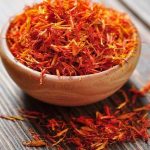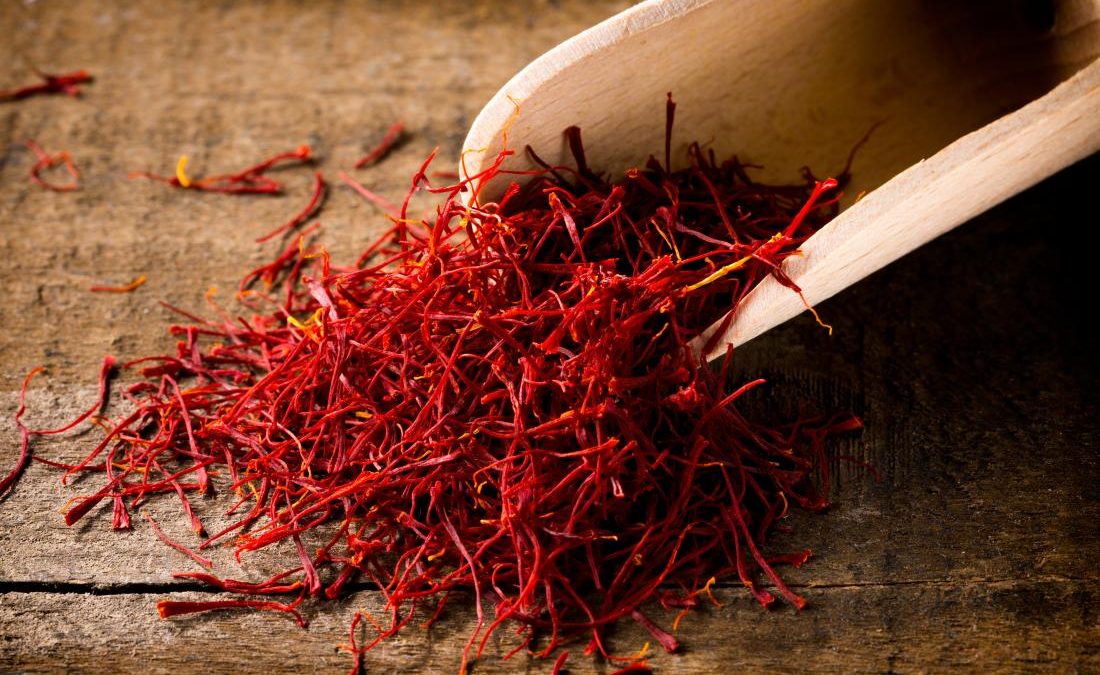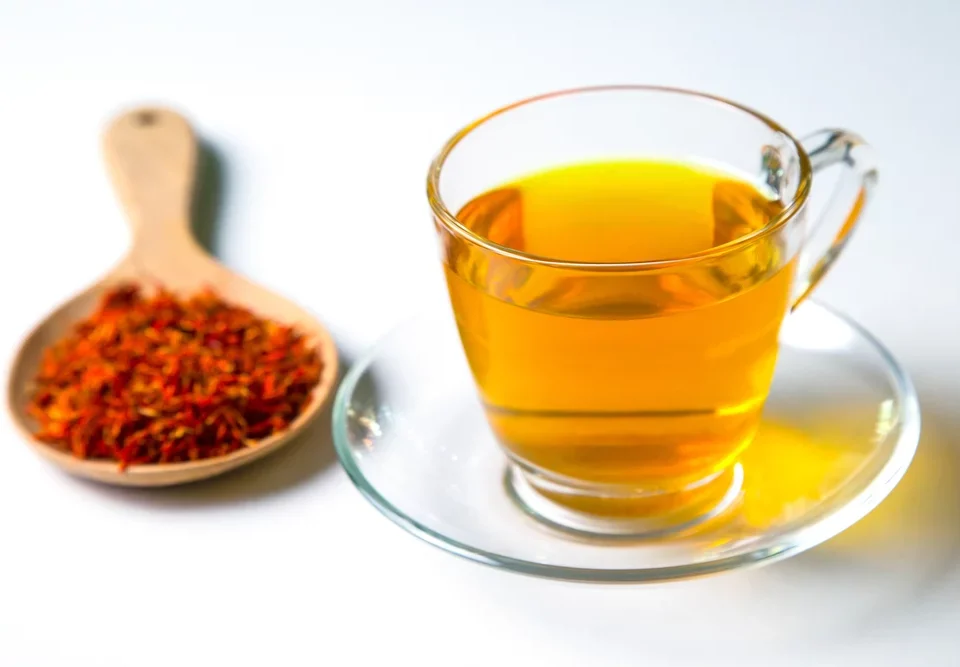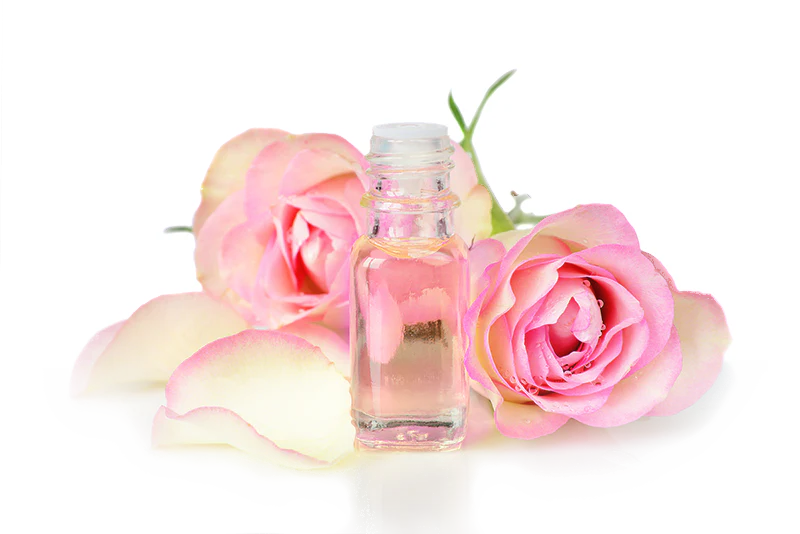
Saffron Types
October 20, 2024Health Benefits of Saffron
You know of saffron as the spice used to flavor dishes, but saffron has a long and varied history in herbal medicine spanning over 2500 years. According to research, saffron has been used in various countries to treat skin disease, respiratory issues, poor vision, pain, mental illness, gynecological problems, erectile dysfunction, and infections.
Main Components of Saffron
More than 150 chemicals are present in saffron, but the key ones are Crocin, Picrocrocin, and Safranal.
Crocin, which accounts for the yellow pigmentation from the stigmas.
Picrocrocin, which gives the rusty, bittersweet flavor.
Safranal, which lends the earthy fragrance to the spice.
What are the health benefits of saffron?
Saffron is used for asthma, cough and whooping cough (pertussis). It is also used for insomnia (sleep problems), atherosclerosis (hardening of the arteries), flatulence (Stomach gas), depression, fright, shock, hemoptysis (spitting up blood), pain, heartburn, boost memory and dry skin.
Men use saffron to prevent early orgasm and infertility. Women use it for menstrual cramps and premenstrual syndrome. Saffron is also used to increase interest in sex to induce sweating.
Some people apply saffron directly to the scalp for baldness (alopecia). In foods, saffron is used as a spice, yellow food coloring, and as a flavoring agent. In manufacturing, saffron extracts are used as a fragrance in perfumes and as a dye for cloth.
Other Potential Health Benefits:
- Reduce heart disease risk factors
- Lower blood sugar levels
- Improve eyesight in adults with age-related macular degeneration
- Improve memory in adults with Alzheimer’s disease
- Reduce Appetite and Aid Weight Loss
- Have Cancer-Fighting Properties
- Improve Mood and Treat Depressive Symptoms
Saffron Dosage And Side Effects
Saffron is safe in the food amount. Taking large amounts of saffron (5grams or more) is more dangerous for certain groups of people and can cause poisoning. Also, allergic reactions would occur in some cases.
Pregnancy: Larger amounts of saffron can make the uterus contract and might cause a miscarriage. In high doses, saffron had been used for abortion due to traditional medicine. As a result, you shouldn’t take saffron if you’re pregnant.
Low blood pressure: Saffron might lower blood pressure. Taking saffron might make blood pressure become too low in people with low blood pressure.
http://rubynaturalco.com
Health Benefits of Saffron
You know of saffron as the spice used to flavor dishes, but saffron has a long and varied history in herbal medicine spanning over 2500 years. According to research, saffron has been used in various countries to treat skin disease, respiratory issues, poor vision, pain, mental illness, gynecological problems, erectile dysfunction, and infections. Firstly, know the components of saffron.
Main Components of Saffron
More than 150 chemicals are present in saffron, but the key ones are Crocin, Picrocrocin, and Safranal.
Crocin, which accounts for the yellow pigmentation from the stigmas.
Picrocrocin, which gives the rusty, bittersweet flavor.
Safranal, which lends the earthy fragrance to the spice.
All of these chemicals give wonderful properties to saffron. Secondly, let’s talk about the health benefits of saffron.
What are the health benefits of saffron?
Saffron is used for asthma, cough and whooping cough (pertussis). It is also used for insomnia (sleep problems), atherosclerosis (hardening of the arteries), flatulence (Stomach gas), depression, fright, shock, hemoptysis (spitting up blood), pain, heartburn, boost memory and dry skin.
Men use saffron to prevent early orgasm and infertility. Women use it for menstrual cramps and premenstrual syndrome. Saffron is also used to increase interest in sex to induce sweating.
Some people apply saffron directly to the scalp for baldness (alopecia). In foods, saffron is used as a spice, yellow food coloring, and as a flavoring agent. In manufacturing, saffron extracts are used as a fragrance in perfumes and as a dye for cloth.
Health Benefits of Saffron
- Reduce heart disease risk factors
- Lower blood sugar levels
- Improve eyesight in adults with age-related macular degeneration
- Improve memory in adults with Alzheimer’s disease
- Reduce Appetite and Aid Weight Loss
- Have Cancer-Fighting Properties
- Improve Mood and Treat Depressive Symptoms
Saffron Dosage And Side Effects
Although saffron is helpful and gives a great taste to the food. But taking large amounts of saffron (5grams or more) is more dangerous for certain groups of people and can cause poisoning. Also, allergic reactions would occur in some cases.
Pregnancy: Larger amounts of saffron can make the uterus contract and might cause a miscarriage. In high doses, saffron had been used for abortion due to traditional medicine. As a result, you shouldn’t take saffron if you’re pregnant.
Low blood pressure: Saffron might lower blood pressure. Taking saffron might make blood pressure become too low in people with low blood pressure.
————————————————————————————–
Health Benefits of Saffron
You know of saffron as the spice used to flavor dishes, but saffron has a long and varied history in herbal medicine spanning over 2500 years. According to research, people use saffron in various countries to treat skin disease, respiratory issues, poor vision, pain, mental illness, gynecological problems, erectile dysfunction, and infections. Firstly, know the components of saffron.
Main Components of Saffron
More than 150 chemicals are present in saffron, but the key ones are Crocin, Picrocrocin, and Safranal.
Crocin, which accounts for the yellow pigmentation from the stigmas.
Picrocrocin, which gives the rusty, bittersweet flavor.
Safranal, which lends the earthy fragrance to the spice.
All of these chemicals give wonderful properties to saffron. Secondly, let’s talk about the health benefits of saffron.
What are the health benefits of saffron?
Most people use saffron for asthma, cough and whooping cough (pertussis). It is also used for insomnia (sleep problems), atherosclerosis (hardening of the arteries), flatulence (Stomach gas), depression, fright, shock, hemoptysis (spitting up blood), pain, heartburn, boost memory and dry skin.
Men use saffron to prevent early orgasm and infertility. Women use it for menstrual cramps and premenstrual syndrome. Women and men use saffron to increase interest in sex to induce sweating.
Some people apply saffron directly to the scalp for baldness (alopecia). In foods, saffron is used as a spice, yellow food coloring, and as a flavoring agent. In manufacturing, saffron extracts are used as a fragrance in perfumes and as a dye for cloth.
Other Potential Health Benefits:
- Reduce heart disease risk factors
- Lower blood sugar levels
- Improve eyesight in adults with age-related macular degeneration
- Improve memory in adults with Alzheimer’s disease
- Reduce Appetite and Aid Weight Loss
- Have Cancer-Fighting Properties
- Improve Mood and Treat Depressive Symptoms
Saffron Dosage And Side Effects
Although saffron is helpful and gives a great taste to the food. But taking large amounts of saffron (5grams or more) is more dangerous for certain groups of people and can cause poisoning. Also, allergic reactions would occur in some cases.
Pregnancy: Larger amounts of saffron can make the uterus contract and might cause a miscarriage. In high doses, women use saffron for abortion due to traditional medicine. As a result, you shouldn’t take saffron if you’re pregnant.
Low blood pressure: Saffron might lower blood pressure. Taking saffron might make blood pressure become too low in people with low blood pressure.




